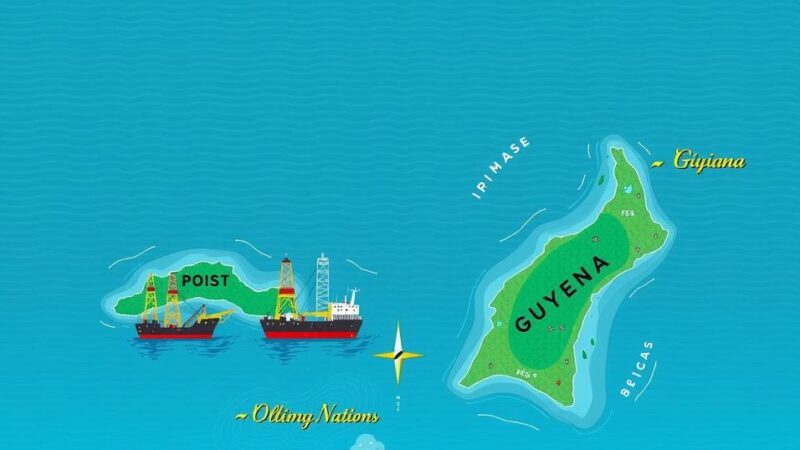This commentary explores the parallels between Salvadoran President Nayib Bukele’s authoritarian style and potential shifts in American politics under former President Trump. Bukele’s defiance of U.S. judicial authority exemplifies a troubling trend that may influence Trump’s approach, as both leaders exhibit contempt for judicial independence. The interplay between Bukele and Trump raises significant concerns regarding the future of democratic governance in the Americas.
In an intriguing commentary, parallels are drawn between Salvadoran President Nayib Bukele’s authoritarian governance and potential developments in American politics under former President Trump. Bukele’s recent defiance of a U.S. District Court ruling regarding the deportation of Venezuelan migrants highlights the growing authoritarian tendencies that could influence the U.S. democratic landscape. Bukele’s dismissive remark, “Oopsie … Too Late,” toward the judicial order reflects a troubling trend where autocratic leaders may embolden similar actions in America.
Former U.S. District Judge James Boasberg raised alarm over the Trump administration’s use of the 1798 Alien Enemies Act to categorize Venezuelan migrants as terrorists, despite many lacking criminal backgrounds. Trump’s response to Boasberg’s ruling has mirrored Bukele’s contempt for judicial authority, with Trump referring to the judge as “a radical left lunatic” and calling for his impeachment. This indicates a shift towards a more confrontational relationship with the judiciary, reminiscent of Bukele’s actions in El Salvador.
While Bukele has effectively dismantled aspects of El Salvador’s judiciary and governance, Trump appears to be learning from this model as he seeks to undermine judicial independence in the United States. Bukele’s consolidation of power, exemplified by his purging of Supreme Court justices and aggressive crime policies, has left a significant mark on the nation’s democratic frameworks. This model has garnered attention and potentially favorable responses among other autocratic leaders within the region, raising concerns about the spread of similar practices.
Douglas Farah, president of IBI Consultants, emphasizes that Bukele has successfully branded an authoritarian model attractive to populist figures like Trump. This endorsement by Trump of Bukele’s leadership might incentivize a cascade of authoritarian movements throughout Latin America influenced by their respective autocratic leaders. As these trends permeate the political landscape, the implications for democracy in both regions become increasingly alarming.
The commentary concludes that the mutual encouragement between Bukele and Trump poses serious risks for democratic institutions. The willingness of authoritarian leaders to emulate one another, as seen with Bukele’s influence on Trump, signals a potential decline in democratic governance. This raises urgent questions about the future of democratic norms in both the U.S. and El Salvador, as such developments could pave the way for a broader shift away from democratic principles.
In essence, the comparison between Nayib Bukele’s governance in El Salvador and potential strategies employed by former President Trump illustrates a concerning trend towards authoritarianism. Bukele’s actions have not only influenced domestic politics in El Salvador but have also resonated with like-minded leaders in the U.S. The implications for democracy in both regions are substantial, prompting critical reflections on the future of democratic governance.
Original Source: www.wlrn.org






